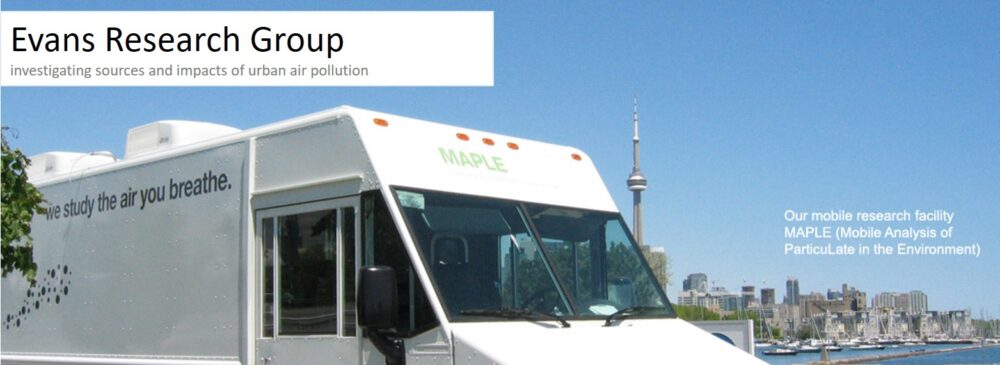Many chronic diseases are now believed to be due to a combination of an individual’s genome and their cumulative environmental exposure. Exposome, analogous to genome, is an emerging approach to assessing this exposure. Internationally very large research initiatives are planned or underway in this new field but there has been little activity to date in Canada. Internal funding has just been awarded to a team lead by Prof. Greg Evans to launch an exposomics research initiative, as a multi-disciplinary collaboration between the faculty of Applied Science and Engineering and the Dalla Lana School of Public Health. This three year project will bring together and leverage existing infrastructure, expertise, and research activities across our University. The objective will be to put in place a foundation of people, methods and pilot data needed to support large research proposals and help position our University to become a leader in this exciting new research field.
 Photo source: CANUE
Photo source: CANUE
